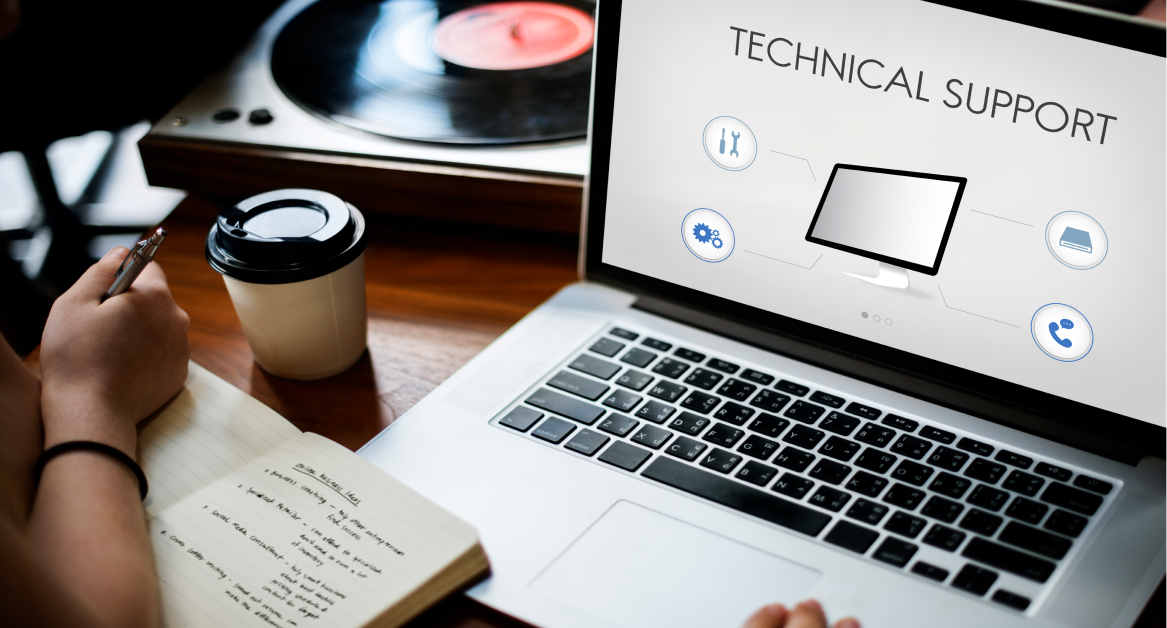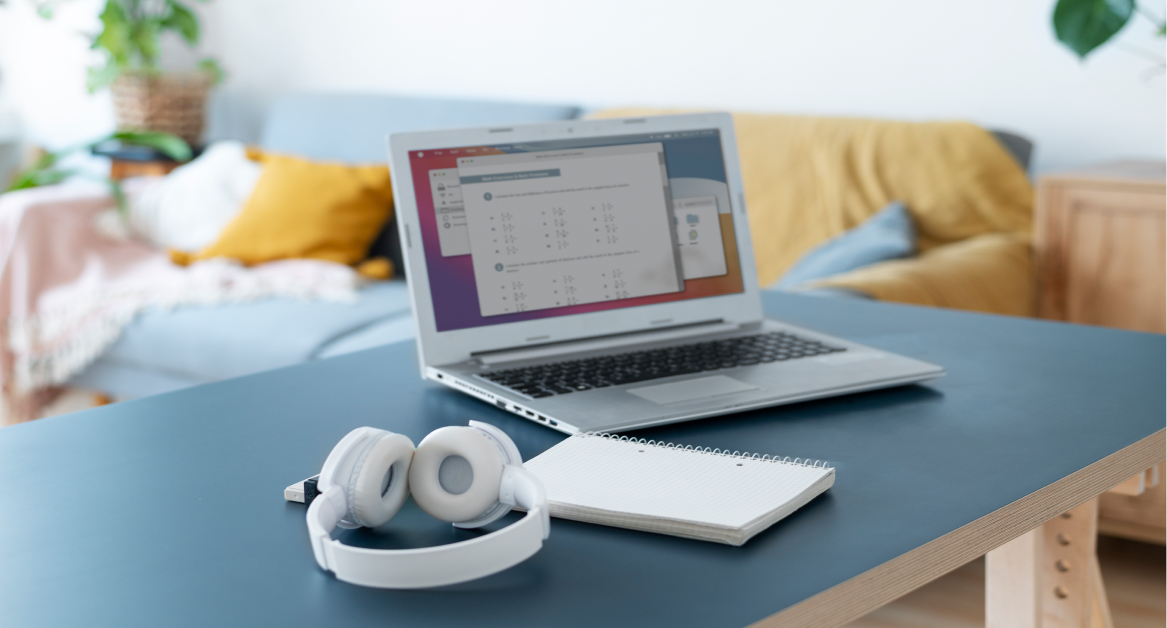Running a startup in Singapore isn’t easy—especially when your team is hybrid or remote. Devices break. Software gets outdated. Security risks multiply. And you end up spending more time managing hardware than building your product or strategy.
That’s where Device-as-a-Service (DaaS) makes sense. Instead of buying devices outright and dealing with all the associated headaches—such as procurement, support, and upgrades—you outsource most of the device lifecycle to a provider.
Predictable costs, less fuss, and a chance to focus on what really matters.
Let’s take a look!
Challenges in Singapore that DaaS can solve
Running a business in Singapore has its own set of IT challenges. Many of these problems become even more complex when teams are hybrid or fully remote. This is where Device-as-a-Service (DaaS) providers in Singapore step in. They don’t just handle procurement and deployment; they help startups and growing companies overcome structural pain points that come with scaling.
High upfront IT costs
Buying laptops and devices for every employee requires a large capital investment. For startups and SMEs, this can eat into budgets that should be spent on product development, hiring, or marketing. DaaS changes the game by converting these large capital expenditures into predictable monthly operating costs.
Fast-paced employee turnover
Singapore’s tech talent market is highly competitive. Employees move between roles quickly, which means companies need to onboard and offboard staff without delays. Manual device handling often results in wasted time, lost equipment, or even security risks. With DaaS, device provisioning and de-provisioning is automated, ensuring every new hire has the right setup from day one while departing employees are securely offboarded.
Managing distributed teams
Many Singapore-based companies now run regional teams across Southeast Asia. Managing devices for staff in multiple countries can be a nightmare—different customs, shipping delays, and lack of local IT support. DaaS providers with global logistics networks make sure devices are shipped, configured, and supported consistently, regardless of where employees are located.
Cybersecurity and compliance risks
Data protection is a growing concern in Singapore, especially with regulations like the Personal Data Protection Act (PDPA). Small companies often don’t have dedicated security teams to enforce compliance. A good DaaS partner integrates enterprise-grade security, such as encryption, firewalls, and remote lock/wipe features, so companies can stay compliant while reducing risk.
Device maintenance and downtime
When devices fail, productivity takes a hit. For companies without in-house IT support, even small technical issues can lead to hours of downtime. DaaS providers offer real-time IT support and global hardware services such as repairs and loaner devices. This keeps employees productive and minimizes the hidden costs of downtime.
Lack of IT expertise
Not every startup can afford a dedicated IT department. Yet, scaling a business requires professional IT management. DaaS essentially acts as an extension of your IT team—handling procurement, tracking, maintenance, and security—so founders and CIOs can focus on strategy rather than operations.
👉 In short, DaaS solves the most pressing challenges Singapore businesses face: cost, speed, security, and scalability. By addressing these areas, startups can stay competitive while focusing resources where they matter most.
Step-by-step guide: how to choose the right DaaS provider in Singapore
Choosing the right Device-as-a-Service (DaaS) provider in Singapore isn’t just about finding someone who can deliver laptops. The best provider should align with your business strategy, scale with your growth, and reduce operational headaches.
Step 1: Assess your company’s needs
Before comparing vendors, outline what your business really requires. Ask yourself:
- How many devices will you need in the next 6–12 months?
- Do you expect rapid growth or high employee turnover?
- Are your teams based only in Singapore, or spread across Asia Pacific?
- How critical are advanced security features for your industry?
By defining these needs upfront, you avoid overpaying for services you won’t use—or worse, underinvesting in critical features like cybersecurity.
Step 2: Evaluate procurement and delivery capabilities
A key benefit of DaaS is eliminating the complexity of device procurement. Look for providers that:
- Offer a wide selection of devices and accessories at competitive pricing
- Can source and deliver to multiple countries, not just Singapore
- Provide zero-touch deployment so devices arrive ready for work
If your teams are distributed, ensure the provider can handle customs clearance and last-mile delivery without delays.
Step 3: Check device management and lifecycle support
DaaS is more than a subscription model—it’s about ongoing management. The provider should:
- Offer full visibility into device inventory through a centralized dashboard
- Automate provisioning and de-provisioning when employees join or leave
- Provide lifecycle services such as upgrades, repairs, and replacements
This ensures your hardware stays compliant, updated, and productive throughout its lifecycle.
Step 4: Verify security and compliance measures
In Singapore, compliance with regulations like PDPA is non-negotiable. The right DaaS provider should include:
- Enterprise-grade encryption and firewalls
- Remote lock and data wipe capabilities
- Automated security updates and compliance monitoring
This reduces risks of data breaches and ensures your devices remain secure even if they are lost or stolen.
Step 5: Evaluate IT support services
A good DaaS provider should act as an extension of your IT team. Look for:
- 24/5 real-time IT support that can quickly resolve employee issues
- Global repair and loaner device programs to minimize downtime
- Proactive monitoring to catch issues before they disrupt work
This support layer is especially crucial for startups without a large in-house IT staff.
Step 6: Review pricing models and scalability
Not all pricing models are created equal. Some providers lock you into rigid contracts, while others offer flexibility. Consider:
- Pay-as-you-go vs fixed monthly subscription
- Flexibility to scale up or down as headcount changes
- Transparent costs without hidden fees
The right provider should align costs with your growth, not penalize you for scaling.
Step 7: Consider the provider’s reputation and partnerships
Finally, reputation matters. Check for:
- Case studies and testimonials from Singapore or regional companies
- Partnerships with top device manufacturers
- Experience in supporting industries similar to yours (tech, fintech, professional services)
Providers with a proven track record give you confidence they can deliver consistently.
Simplify device procurement and deployment with Esevel
Managing devices shouldn’t be a distraction from growing your business. Yet for many startups in Singapore, it often is. From budgeting and procurement to onboarding, security, and support, the burden of managing IT can easily overwhelm small teams.
Esevel can be your comprehensive solution.
Esevel is more than just another Device-as-a-Service provider in Singapore. It’s a full-stack IT platform designed for companies with hybrid and remote teams worldwide.
👉 If you’re looking for a reliable, flexible, and secure DaaS provider in Singapore, Esevel is the partner that can simplify your device procurement and deployment—so you can keep your business moving forward.
Learn more at esevel.com
FAQs
1. What is Device-as-a-Service (DaaS)?
Device-as-a-Service is a model where businesses lease devices such as laptops and desktops from a provider instead of buying them outright. The provider manages procurement, deployment, maintenance, upgrades, and end-of-life recycling, while companies pay a predictable monthly fee.
2. Why are DaaS providers in Singapore becoming popular?
Singapore companies are facing higher IT costs, faster employee turnover, and stricter data protection regulations under the PDPA. DaaS providers help by reducing upfront capital expenditure, ensuring compliance, and supporting hybrid and remote workforces with scalable device management.
3. How does DaaS improve security?
With DaaS, devices come with built-in security features such as encryption, firewalls, remote lock, and data wipe. Providers also handle timely updates and compliance checks, ensuring that devices remain secure and aligned with company policies.
4. What should I look for when choosing a DaaS provider in Singapore?
Focus on:
- Global procurement and delivery capability
- Automated device provisioning and de-provisioning
- Enterprise-grade security and compliance support
- Real-time IT and hardware support
- Flexible pricing that scales with your business
5. How is Esevel different from other DaaS providers?
Esevel is more than a DaaS provider. It is a full-stack IT platform that combines SaaS automation with professional IT support. Beyond device procurement, Esevel provides centralized IT management, onboarding/offboarding automation, 24/5 IT support, and global coverage across 88+ countries—making it ideal for startups with hybrid or remote teams.👉 With this FAQ, your readers will have practical answers while reinforcing Esevel’s positioning as a trusted Device-as-a-Service provider in Singapore.







